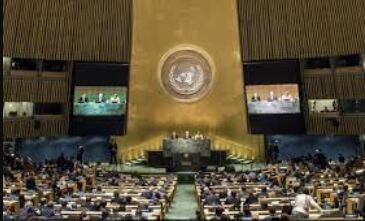UN to Examine China's Rights Record: Crackdown on Civil Liberties, Xinjiang Repression, and Hong Kong Law Under Intense Scrutiny
The United Nations to review China's rights record, focusing on crackdowns in Hong Kong and Xinjiang, backlash from Western countries, and hopes for accountability.
The United Nations will be conducting a review of China's rights record, with a focus on concerns such as the crackdown on civil liberties, repression in Xinjiang, and the national security law in Hong Kong. This examination, known as Universal Periodic Review (UPR), will involve intense scrutiny from Western countries, with a Western diplomat emphasizing the importance of holding China accountable. The issues likely to be raised are extensive, including the national security law imposed on Hong Kong, efforts to erase cultural and religious identity in Tibet, and allegations of incarcerating more than a million Uyghurs and other Muslim minorities in Xinjiang.
Despite China's rejection of these charges, a report released by UN rights chief Michelle Bachelet in 2022 cites possible crimes against humanity. Rights advocates are hopeful that the UPR will provide an opportunity for countries to back the findings and demand action from Beijing in addressing these concerns. There is also an expectation for pointed questions to be raised on Beijing's crackdown on civil society, with the 10th anniversary of the death of activist Cao Shunli serving as a reminder of the consequences of speaking out against China's human rights record.
China's delegation aims to present its rights situation in a positive light, emphasizing the importance of respecting and protecting human rights. However, concerns have been raised about China's efforts to control the narrative, including requests to exclude anti-China separatists and slogans from the session, as well as pressuring countries to express positive feedback. With 163 states scheduled to speak during the half-day session, each country will have just 45 seconds to address their concerns, raising concerns about the difficulty of encapsulating these issues in such a short timeframe.




